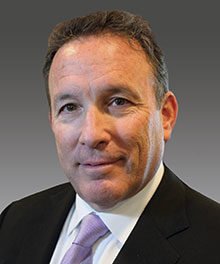Self-Made Women Billionaires

The Forbes list of the Richest Self-Made Women is out, and it’s been fascinating to see who made it. For the first time, the list includes 31 billionaires—seven more than last year.
One thing that stood out for me was how much meaningful progress women are making in entrepreneurship and wealth building. In one telling indicator, women had to have a net worth of $300 million in assets to qualify, up from $225 million last year.
Where are the women on the list making all of their money? It ran the gamut. I was delighted to see that some have been wildly successful in classic middle-market industries. Diane Hendricks—who co-founded roofing and building supply distributor ABC Supply—topped the list with a $20.9 billion fortune, a $15 billion jump from last year.
And many are making a mark in industries women once found very hard to break into—among them Uncle Nearest whisky founder Fawn Weaver, 92-year-old money manager Joan Payden, and SpaceX Chief Operating Officer Gwynne Shotwell. Still others are celebrities. Katy Perry, who sold her music catalogue in September, is now worth $350 million, and Taylor Swift, now worth an estimated $1.3 billion after her blockbuster tour, are both new additions to the list.
That said, these women are still outliers. Women still face many challenges and obstacles as entrepreneurs. Funding remains one of the biggest. It’s hard to believe this is true, but in 2023, only 2% of all venture capital invested in the U.S. went to companies founded solely by women, according to data from Pitchbook. Yes, 2%. There has been almost no progress on this front in decades, despite some serious efforts to break down barriers. It’s truly frustrating to see this.
While most firms don’t need venture capital, this gap does have a significant effect on scalable startups. It’s hard to build a billion-dollar company in many industries without deep-pocketed investors.
The good news is that, as the Forbes list illustrates, many women are finding workarounds or other ways to fund their ventures. Bank financing is often sufficient for traditional companies in industries such as manufacturing, and many women founders do have strong banking relationships. Beyond this, some professional services firms, like our own, are actively stepping up as a catalyst to help women business leaders broaden their networks and make the connections that can spark companies’ growth. The Marcum Women’s Initiative hosts group regional events to unite women of all backgrounds, providing opportunities to network, share stories and exchange ideas.
In the meantime, there’s real value in tracking entrepreneurs, entertainers, and business leaders who are breaking barriers. It shows us how much progress is being made, even while there is plenty of work to be done to support women in business. For every story that is being told in media coverage like this, there are countless girls and women being inspired to go after their own dreams—our daughters, sisters, mothers, and colleagues. I look forward to seeing the roster of entrepreneurial talent in future rankings.
